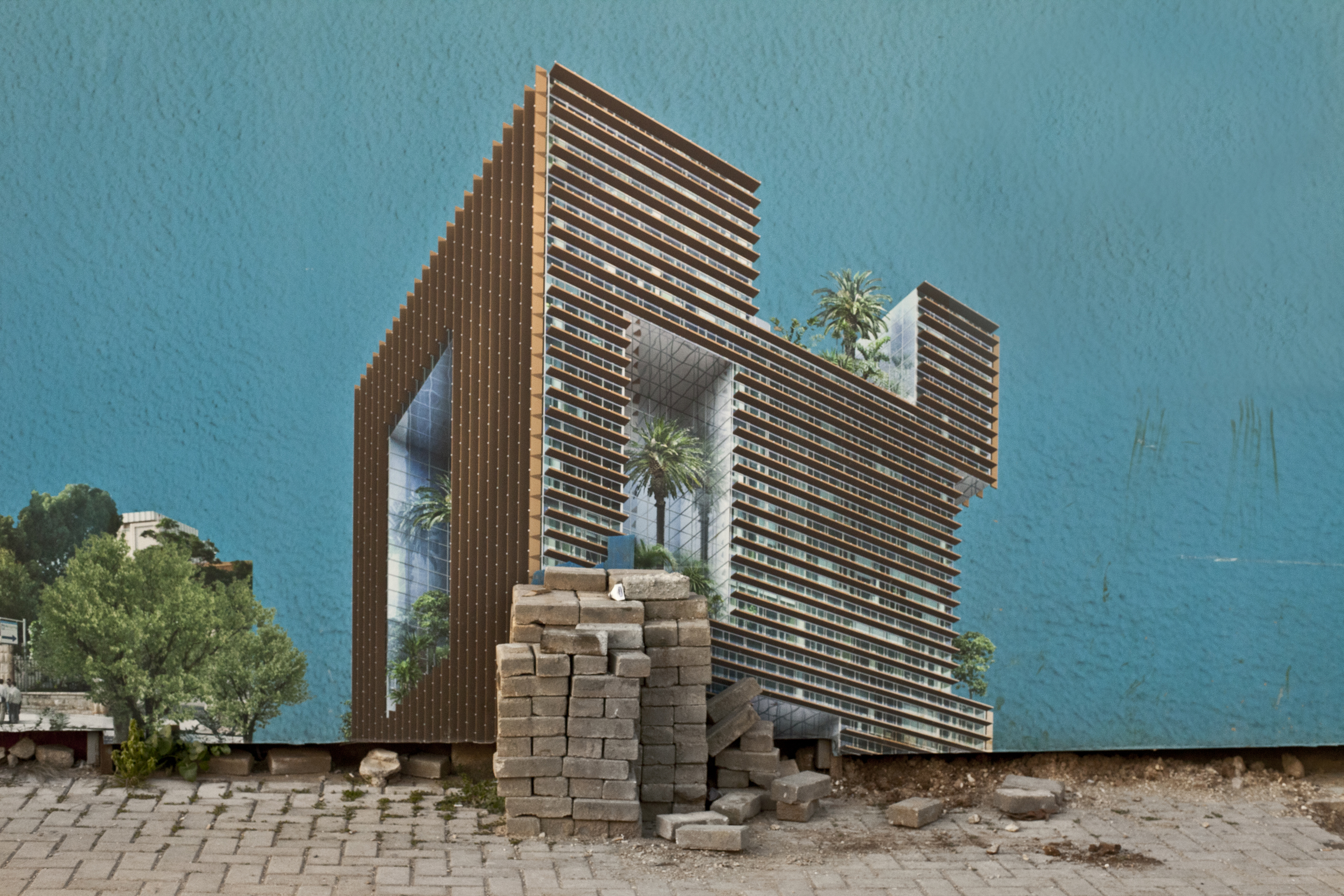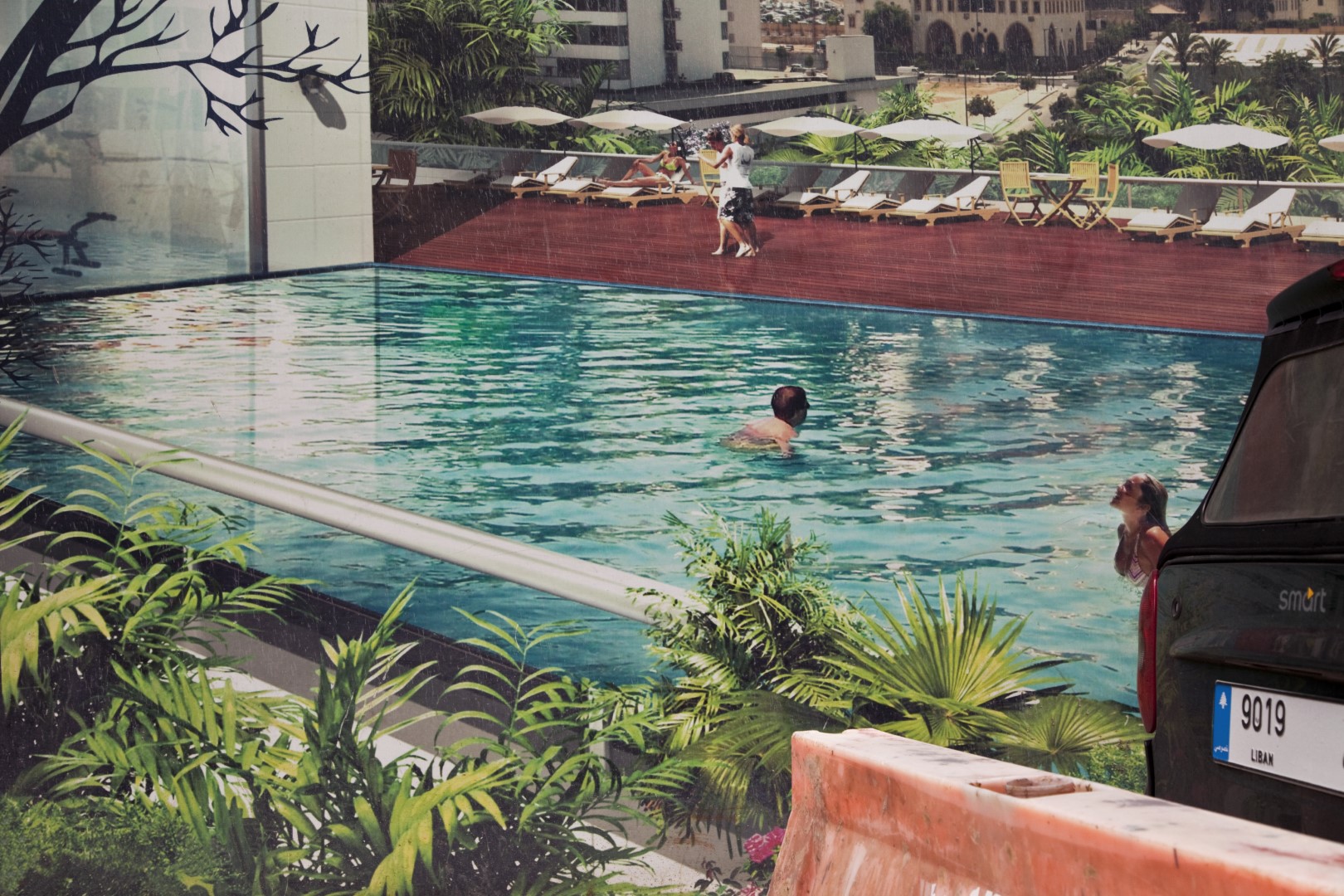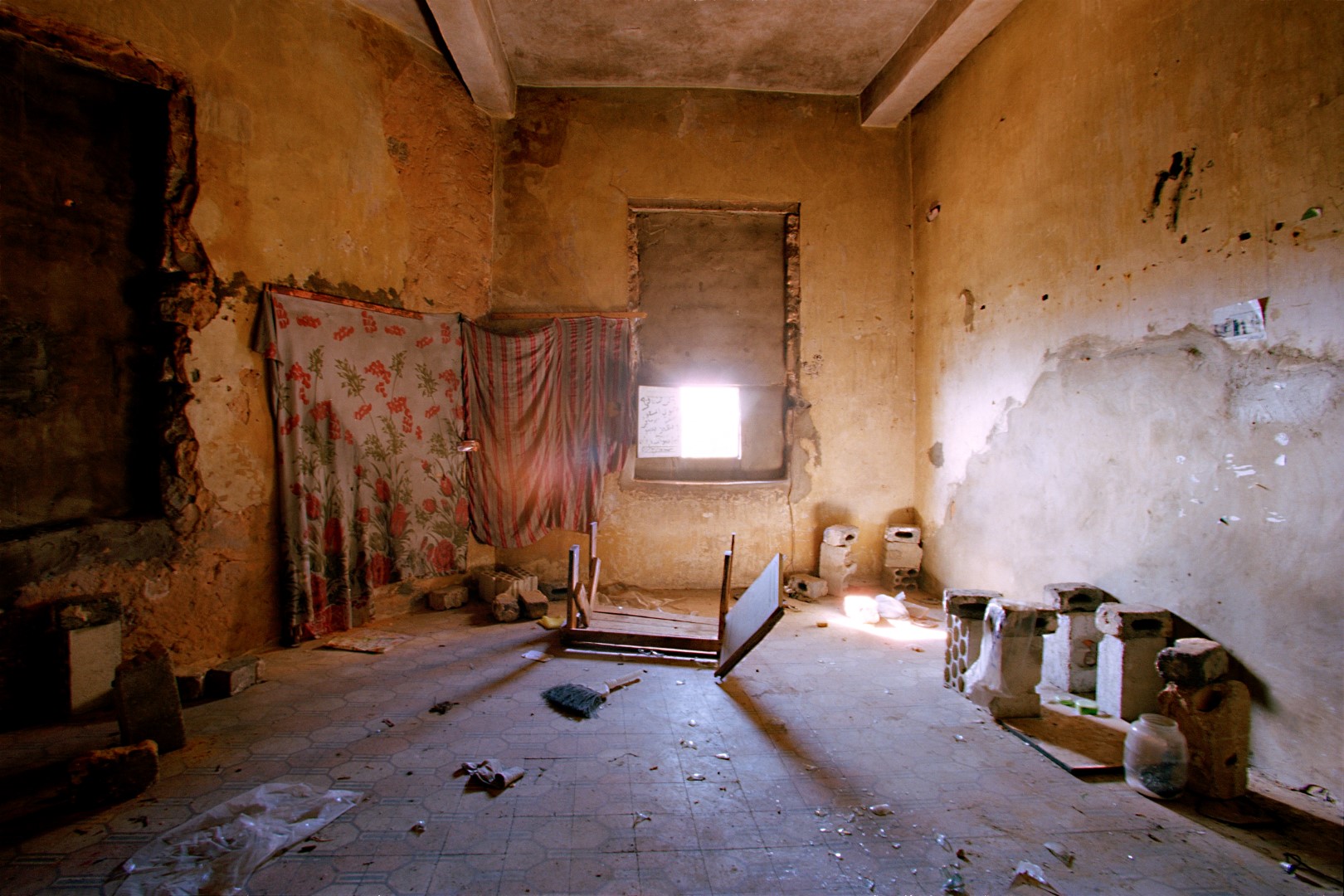In the exhibition BEIRUTOPIA, Lebanese photographer Randa Mirza (1978) examines the dramatic changes that Beirut, the city she was born and grew up in, has undergone. In recent decades, Lebanon has been rocked by a succession of political, financial and social crises and its people have been burdened by a political elite that enriches itself at their expense. BEIRUTOPIA is a personal visual essay in which we see the city through Mirza’s eyes. In several series of photographs made between 2000 and 2025, Mirza shows how Lebanon has been gripped by the ongoing conflicts in the Middle East. In each series, she has chosen a specific visual language to express her observations and feelings. Her poetic work is characterised by the interplay between truth and fiction, questioning the image as a reliable representation of reality.
Exhibition
In the exhibition BEIRUTOPIA, Randa Mirza takes us through the recent history of Lebanon, and in particular Beirut, where she was born in 1978 during the Lebanese Civil War (1975-1990). Since the end of the civil war, Beirut has attempted to live up to the myth of a cosmopolitan city at the crossroads of East and West, but the unrelenting destruction and subsequent reconstruction plans have only distanced the city further from this utopia, plunging its population into uncertainty and despair.
About her motivation for bringing the different series together, she says: “I remember one day during the war when my mother shouted at me to run under the bombs and not look back. I grew up with the conviction that the catastrophe had already happened, until the day I found myself, thirty years later, propelled by a terrible explosion through the streets of my destroyed city.” In her earlier work Abandoned Rooms (2005-2006), Mirza shows the vast reality of destroyed homes that provided shelter for displaced families during the Syrian occupation (1976-2005). These ruins not only depict physical destruction but also symbolise a collective traumatic amnesia. They embody the scars of the city – places of decay in which people nevertheless managed to build a life.
In her most recent series, she is critical of the reconstruction of Beirut. In the series Beirutopia (2010-2020), Mirza confronts us with billboards that promise luxury homes, penthouses and swimming pools – images that contrast sharply with the war and violence that continues in and around Beirut to this day. She calls these advertisements illusions because they portray a utopia that is at odds with the harsh reality of life in the city. Mirza explores another visualisation of the tension between utopia and reality in Parallel Universes (2006-2009), in which she questions the reliability of the photojournalistic image. By combining press images of the Lebanese Civil War and the Israeli attack on Lebanon in 2006 with her own photographs, she holds up a mirror to the viewer and shows how violence is repeatedly presented as a spectacle.


